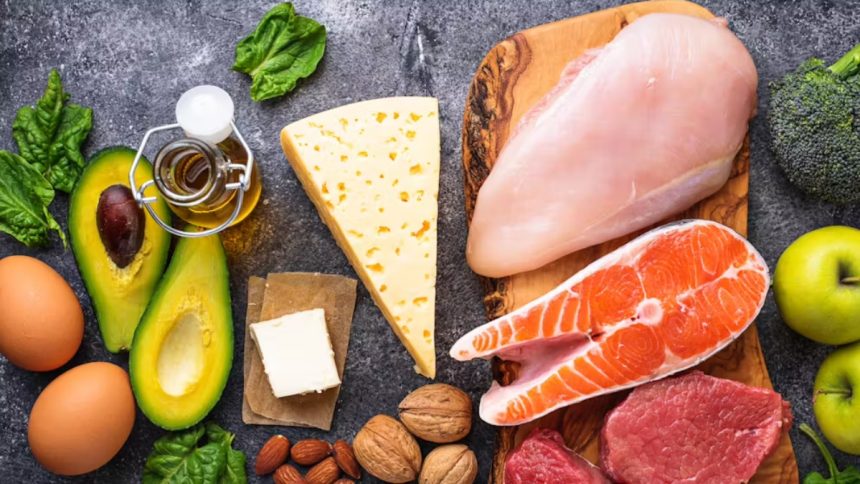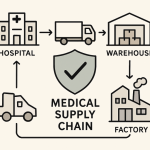For anyone looking to optimize their health, vitamin K2 is essential yet often overlooked. Unlike the more commonly known vitamin K1, which plays a significant role in blood clotting, K2 goes beyond and supports critical functions in the body—particularly for your bones, heart, and general wellbeing. So, if you’re wondering what vitamin K2 does and how to make sure you’re getting enough, here’s what you need to know.
How Vitamin K2 Supports a Healthy Heart and Where to Get It in Your Diet
Vitamin K2 plays a big role in maintaining a healthy heart, which should be a priority for everyone, young or old. The nutrient aids in preventing calcium from building up in the arteries—a process that could otherwise lead to artery stiffness or blockage over time. Essentially, vitamin K2 works like a traffic controller for calcium, ensuring it goes to your bones where it’s needed and stays out of your heart, where it could cause harm. Eating heart-healthy foods that naturally contain vitamin K2 can be a great start.
Fermented foods like natto (a traditional Japanese soybean dish) are incredibly high in K2. If natto is not to your taste, try adding other fermented foods like sauerkraut, miso, or aged cheeses into your diet. For meat-eaters, certain animal products, such as egg yolks and organ meats like liver, also contain vitamin K2. These options make it easy to add a bit of K2 to your diet without needing to overhaul your eating habits.
Why Vitamin K2 Supplements Are a Smart Choice for Your Health Goals
While it’s ideal to get vitamins from natural sources, vitamin K2 is notoriously tricky to find in sufficient amounts in a regular diet—especially for those who don’t eat fermented foods or certain animal products. This is where vitamin K2 supplements offer a great alternative. High-quality supplements can ensure you’re getting the full dose of K2 your body needs without having to eat foods you may not enjoy or don’t fit into your dietary preferences.
Vitamin K2 supplements are widely available and are an easy, effective way to incorporate the nutrient into your daily routine. Just make sure to select a reputable brand and consult with a healthcare provider if you’re unsure about the best dosage for you. With supplements, you can conveniently add K2 to your health regimen, ensuring that your bones and cardiovascular system benefit from this vital nutrient.
Building Strong Bones: Vitamin K2’s Role in Bone Health and Simple Ways to Boost Your Intake
Vitamin K2 is essential in building and maintaining strong bones. It activates a protein called osteocalcin, which binds calcium to the bone matrix, ensuring that calcium does its job in building and fortifying bones instead of lingering in your bloodstream. Inadequate K2 can lead to weaker bones over time, which is especially concerning for older adults looking to prevent fractures or osteoporosis.
To boost your K2 intake naturally, try adding more dairy-based fermented foods to your meals. Foods like cheese and yogurt are generally rich in K2 and are enjoyable additions to most diets. Hard cheeses like Gouda and Jarlsberg, in particular, have high K2 content due to the fermentation process. Pairing these with calcium-rich foods like leafy greens or fortified plant-based milk can further enhance bone strength.
Improving Oral Health: How Vitamin K2 Helps Keep Your Teeth and Gums Strong
Surprisingly, vitamin K2 doesn’t just support bones—it also plays a big role to help you maintain strong teeth and gums. Similar to its role in bone health, K2 directs calcium to the right places in your teeth, helping to keep enamel strong and reducing the risk of cavities. By activating proteins in the saliva that protect teeth from decay, K2 is a silent yet powerful ally for oral health.
If you want to give your teeth a boost, consider incorporating foods rich in K2 alongside foods high in vitamin D, which is another key nutrient for dental health. For example, enjoying an omelet with eggs and cheese can provide a quick source of both K2 and D. You can also snack on nuts or seeds, which add a bit of magnesium, another mineral that supports both bone and dental health. Adding K2-rich foods or taking a supplement can go a long way in supporting a brighter, stronger smile.
Enhancing Your Body’s Ability to Fight Inflammation: Vitamin K2 and Anti-Inflammatory Benefits
Vitamin K2 also has natural anti-inflammatory properties that are especially beneficial for joint health and overall wellness. By promoting bone health and helping to prevent calcium buildup in the wrong places, K2 supports mobility and reduces the likelihood of discomfort from stiff joints or osteoporosis.
Adding more inflammation-fighting foods to your diet alongside K2 can compound these benefits. Leafy greens, olive oil, and fatty fish are well-known for their anti-inflammatory effects and pair nicely with K2-rich foods like cheese and eggs. For those dealing with arthritis or joint pain, this combination can be a game-changer, as it supplies your body with essential nutrients that work together to reduce inflammation and enhance joint function.
Lynn Martelli is an editor at Readability. She received her MFA in Creative Writing from Antioch University and has worked as an editor for over 10 years. Lynn has edited a wide variety of books, including fiction, non-fiction, memoirs, and more. In her free time, Lynn enjoys reading, writing, and spending time with her family and friends.















